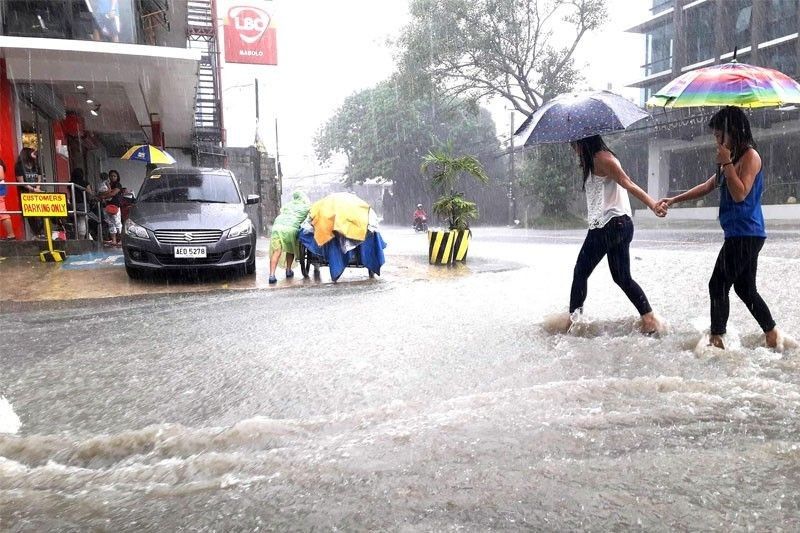Expect more rains this month - PAGASA

CEBU, Philippines — The downpour on Saturday evening may just be the start of more heavy rains to come.
This July, tropical cyclones or "bagyo" is typically frequent.
Alfredo Quiblat, Jr., officer-in-charge of Philippine Atmospheric Geophysical and Astronomical Services Administration (PAGASA) in Cebu, said the province usually receives the most rainfall amount every July.
With this, people can expect more rain events ahead this month.
"July has the highest average volume of rain based on the 30-year period climatological data of PAGASA-Mactan," he told The FREEMAN in a text message.
But for this year, based on the monthly outlook for July, he said forecasted rainfall amount in Cebu may reach closest to the normal average which is 205 millimeters.
He said 205 millimeters is equivalent to 1,025,000 drums per square kilometer lot area. (The standard conversion says 1 millimeter is equivalent to 5,000 drums per square kilometer lot area.)
Quiblat said other causes that contribute to the rainy events are occurrences of thunderstorm that are also common this month.
"Most heavy rains are associated to thunderstorms, either localized events or developing from an ITCZ (Intertropical Convergence Zone)," he further explained.
July also records the most number of land-falling tropical cyclones like in the previous years, said Quiblat.
Quiblat said, though disturbances are most probably to cross Luzon or near the region this season, these weather systems cause to enhance the strength of Southwest monsoon or "Habagat" that may affect Cebu.
That is why he is warning Cebu residents to be wary of the natural hazards like flooding and landslides brought about by thunderstorms or rain-inducing weather systems.
He also cautioned people not to be complacent of thunderstorms because its effects may be as damaging as disturbances; it may bring strong winds, tornado and lightning that may cause injury, death or damage to livelihood or properties.
Quiblat advised the public to keep monitoring PAGASA-issued updates to know when to act for precautionary measures. (FREEMAN)
- Latest





















